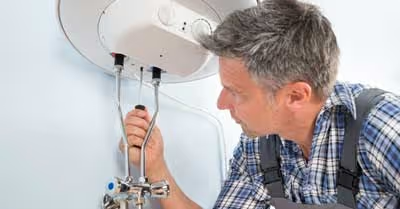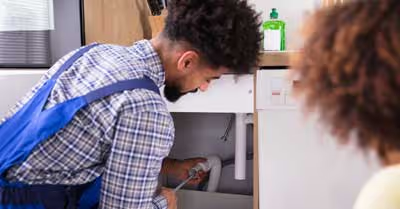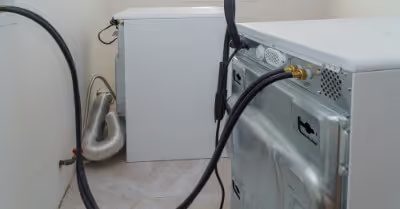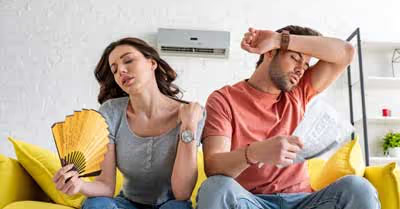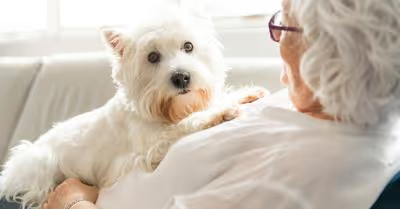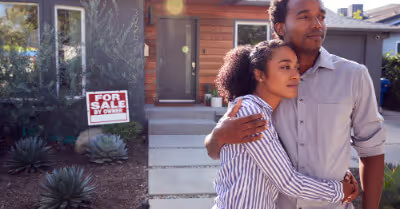Table of Contents
Why is Your Dog Whining?
There are many reasons why your dog may whine. A dog can whine when he’s apprehensive or anxious, when seeking attention, or show appeasement behavior. However, your dog can be showing signs of separation anxiety if he whines when you leave. He can also engage in other behaviors such as drooling, panting, pacing, and becoming destructive especially around exit points.
Identifying the Problem
As you can see, there are a lot of reasons why your dog may be whining when you leave. The best thing to do is to identify the problem first, especially through reward-based training. In most cases, if your dog whines when you leave and perhaps the whining continues after you’re long gone, it might be a sign of heightened anxiety, which is widely known as separation anxiety.
At this point, you should also realize that any form of punishment cannot and will not be a useful tool in dealing with such a problem. So even if you choose to punish your dog for whining, the vocalization might stop but your lovely pooch may still be anxious. In most cases, however, the problem is likely to become even worse.
Separation Anxiety and It’s Causes
If your dog seems to get very anxious when you’re about to head out and whines excessively when you leave, you may be dealing with separation anxiety. Well, it’s not conclusively understood why some dogs suffer from heightened separation anxiety while others don’t.
But even with that, separation anxiety, whether mild or extreme, is part of your dog’s panic response. As such, you shouldn’t think that your dog is trying to punish you. It’s just a way of trying to say that they feel lonely, anxious, and want you to come home.
That being said, here are a few situations that might trigger separation anxiety:
- Being left alone for many hours, especially when used to being around humans
- Being left alone for the first time
- Changes in family routine or structure
- Suffering traumatic events such as being abandoned
Again, separation anxiety can be caused by dog owners, albeit unknowingly. As dog owners, we more often than not make a big fuss when leaving or coming home. In doing so, we are rewarding our dogs and making them be more concerned with our absence. This, in turn, makes them be more stressed and anxious every time we’re heading out.
Dogs are social animals and they love being around their masters at all times. Unfortunately for them, that’s not possible in real life. This is because we have to run errands, go to work, and engage in other activities, and it might not be possible to go with your dog everywhere. So if you’re always around your dog and then you have to leave them alone, he might get a little anxious and may start whining.
A change in the normal routine can also create separation anxiety in your dog. For example, your dog may become anxious, stressed, and bored if you used to take him for morning walks but you no longer do.
How to Stop a Dog from Whining When You Leave
Your vet is likely to prescribe drugs that can calm your dog’s senses, especially if he has separation anxiety. Even though these drugs may stop your dog from whining, they may not cure separation anxiety. In other words, these drugs are just a temporary solution to the problem. As such, you can use these drugs in providing a support system that can help you to rehabilitate the dog.
That being said, here are some proven ways to stop your dog from whining when you leave.
Train Your Dog to Understand that Being Alone is Okay
Training your dog to stop whining when you leave should begin the moment you get him as a puppy. In most cases, a puppy will begin crying and whining when left alone or separated from his pack. Of course, this can be a major change for the puppy and can affect him significantly.
However, picking him up when he’s whining and showing sympathy is an indication to him that you’re rewarding his whining behavior. The same applies when you let him out of his crate when he’s whining.
It’s, therefore, of great importance to teach your dog to be quiet, patient, and calm for long periods of time. If anything, you should reward your furry friend when he’s calm and patient and not when he’s whining. Again, you shouldn’t constantly interact with your dog even when he’s attempting to. Just let him entertain himself and find ways to stay busy.
In essence, it’s important to train your dog to learn that it’s okay to be on their own. Well, this may sound strange to most dog owners given that dogs are naturally social animals and it’s very normal for them to maintain and interact with other dogs or humans. However, it’s important that they learn that being alone is normal and a part of their daily routines.
You have to train your pup to accept the crate and be alone. While you can allow him to explore when supervised, he has to learn the limits and boundaries. He has to respect the boundaries, environment, and of course, the people in that environment. This can only be possible if you teach him to accept that being alone is okay.
Train Your Dog to be Disciplined and Obedient
To be honest with you, your dog whining when you head out may not necessarily mean that he’s disobedient or lacks discipline. However, many dog experts believe that the best cure for separation anxiety comes from how you train your dog to be obedient and disciplined.
The importance of obedience training and discipline is that your dog knows what is expected of him. It helps him develop good behavior from a young age, which becomes a habit even in adulthood. With that, he’ll feel wrong when he behaves badly even without you showing that you’re angry.
You should take advantage of that and train your dog on how you expect him to behave in and around the house whether you’re present or not. This is why you should train him to lie down, sit at the door, and stay at home while you go out for an extended period of time. You should train him to remain calm, sit, and wait to be greeted by guests. Simply put, train your dog to be respectful and have confidence in himself.
Set a Reliable Daily Routine
It’s very normal for your dog to whine when you leave, especially if he’s still coming to terms with his new home. But even if you’ve had the dog for a while, it’s likely that he may feel upset by changes in daily routines such as changes in exercise hours, changes in meal hours, your work hours, a new roommate, and many more, which can lead to dog whining.
That being said, you can stop your dog from whining by putting him in a very consistent and reliable routine. You should also give him ample time to adjust to any changes. So if you’re to change anything, you should consider doing it gradually until your dog adjusts to it.
Maintain Regular Daily Exercises
Believe it or not, lack of exercise might be one of the reasons why your lovely pooch whines when you leave. Most dog species have high levels of energy, which is good. However, having high levels of unspent energy can be a recipe for disaster.
This is because your dog will look for ways to release these energy levels. So whether he resorts to running around the house, destroying things, or whining when you leave, he’ll somehow look for a way to release this unspent energy.
For this reason, you should take him out for a walk right before you leave. Differently, you can choose to engage him in an intense exercise or playing session to help him release this energy. Whether it’s about playing with fetch toys or an indoor agility kit (which is great especially during winter) just make sure that the activity is engaging and long enough to tire him out. This will help him sleep almost right afterward and he’ll probably not whine when you’re gone.
Desensitize Your Dog When You are Leaving
You have to keep in mind that dogs are so good when it comes to mastering routines. Your dog will know if taking your car keys or putting on your shoes means that you’re about to leave. Well, don’t let him read such signs. You can fake it out several times so that he doesn’t master when you’re about to leave.
For example, you can take your car keys, put on your shoes, sit on the couch, and watch TV. Other times you can take your car keys, go down the hallway for a few minutes, and then come back. By doing so, your dog will think that you’re coming back right away and he’ll not whine.
Offer Your Dog a Food Puzzle Toy
One of the best ways to stop your furry friend from whining when you leave is offering him an activity that will keep him engaged while you’re not around. You can consider giving him a food puzzle toy to keep him engaged. This will stop him from whining as he’ll be very busy trying to get the food while you’re gone.
You, however, have to make sure that the food puzzle toy is of the right size for your dog. You can consider buying a couple of such toys so that you can change them each day. Some of the best food puzzle toys to consider include the Tornado Interactive toy, Chewy Puzzle toy, and Squirrel Puzzle toy.
Don’t Make a Big Fuss About Leaving and Coming Back
When you’re getting ready to leave, don’t make a big deal about it. Just gather up your things and leave without lots of kisses and hugs. When you drop these dramatic farewells, your dog will remain calm and patient knowing that you’re just around.
The same should also apply when you come back home. As much as it might be difficult, ignore any attention-seeking behavior from your dog. If anything, you can only reward him if he stays calm and quiet. You can take a few minutes before rewarding him. By doing this, he’ll know that calmness and patience is rewarded and not the other way round.
Crate Train Your Dog
You should train your dog to stay in a particular place whether you’re home or not. You can start crate training your dog by ensuring that he stays in the crate for short periods and then increase the time spent in the crate gradually.
You can also consider feeding him in the crate and reward him by letting him have his favorite toy or bone while in the crate. By doing this, he’ll gradually get used to staying in the crate even when you’re not around. As such, he’ll get used to the crate and won’t whine about being placed in the crate as you head out.
Consider Getting a Dog Sitter
As we’ve noted numerous times in this article, your dog is likely to whine when you leave because he’s anxious and afraid of being left alone. That being said, you can consider hiring a dog sitter if you’ve tried other methods and they aren’t working. You can seek the help of a neighbor, a friend, a relative, or a professional dog sitter to look after your dog when you head out.
We all know that a whining dog can be annoying and it’s important to follow the above-described ideas to ensure that your dog doesn’t whine when you leave. If the problem persists, it would advisable that you seek the services of your veterinarian.
Recent Articles



